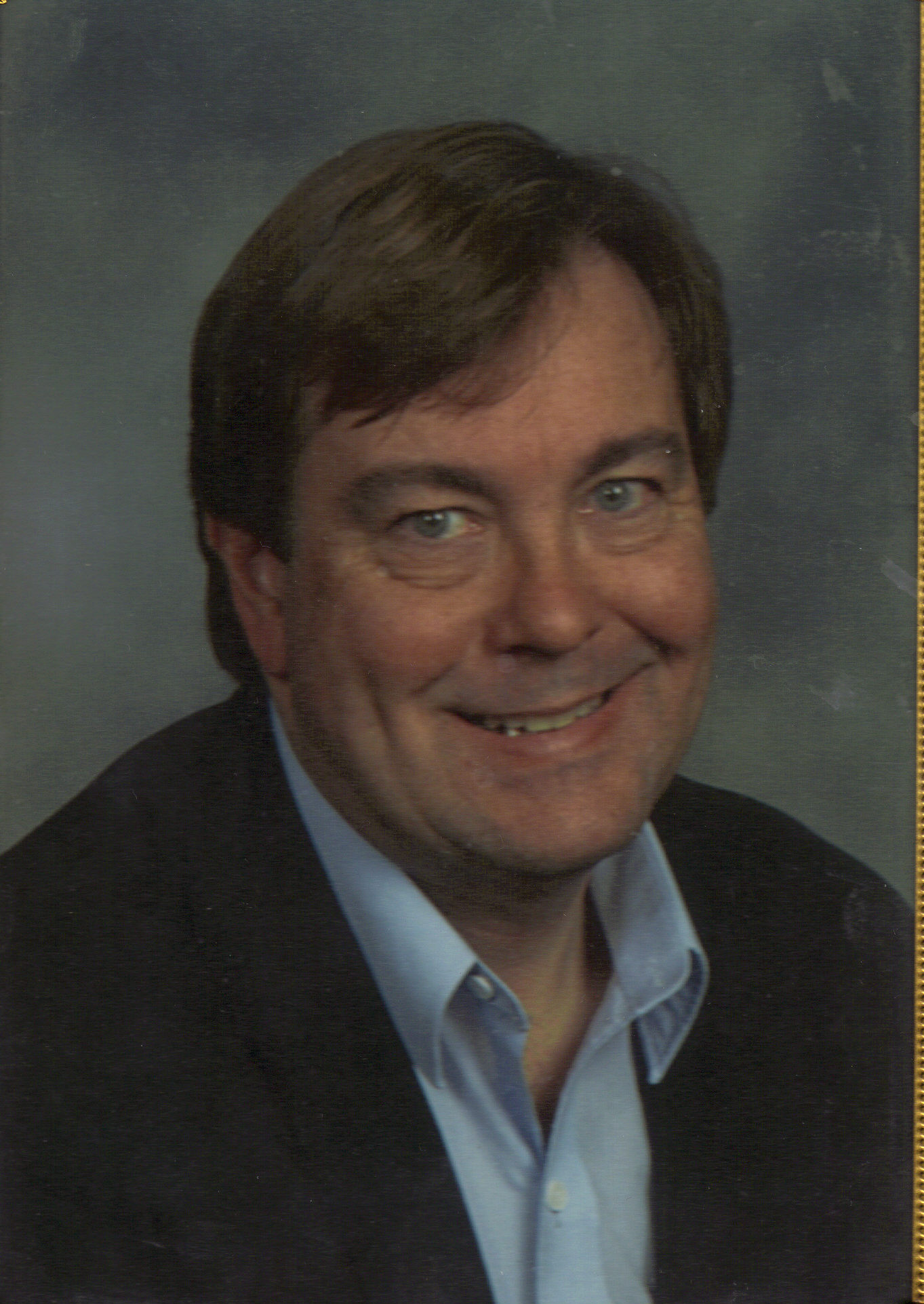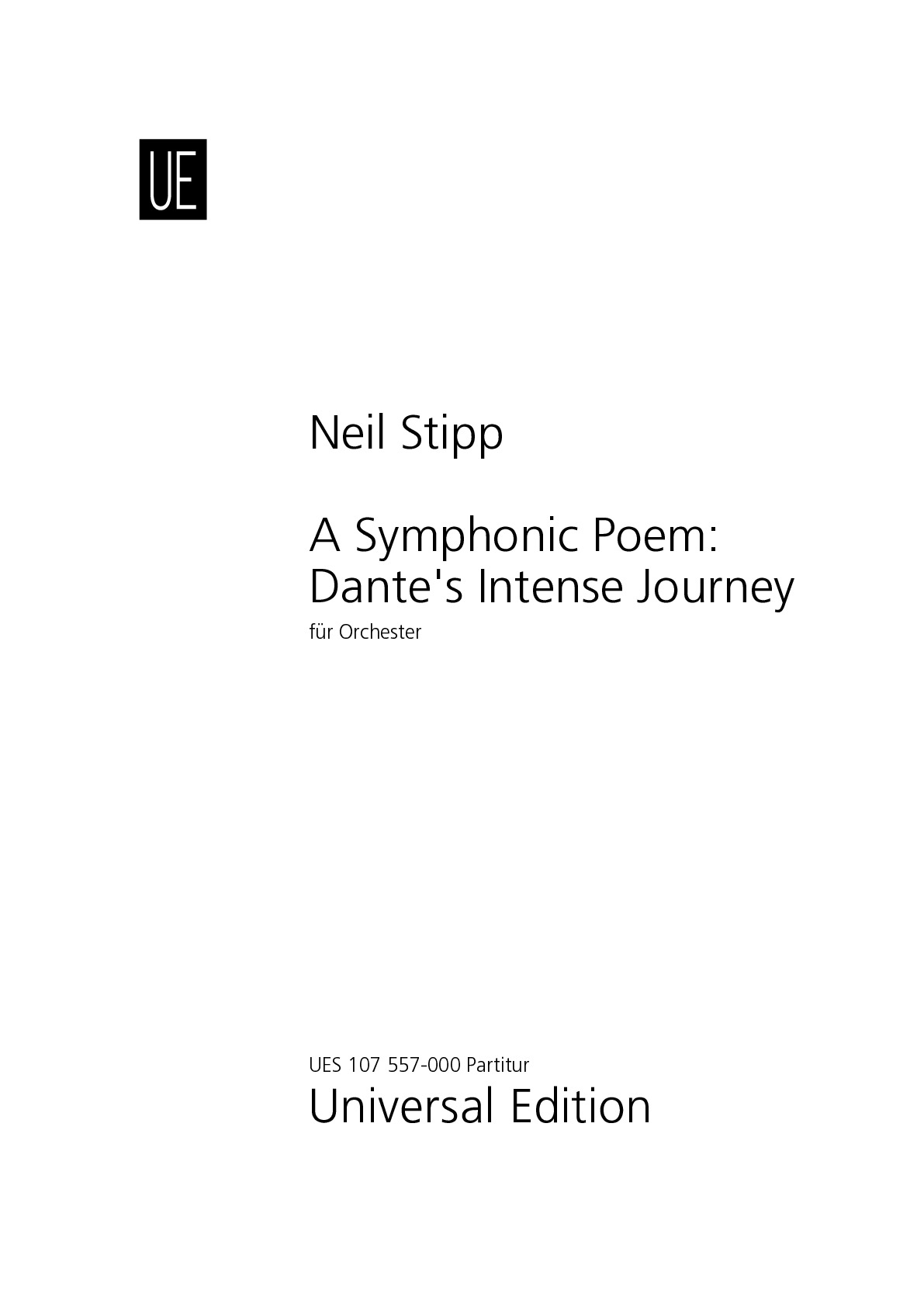

Neil Stipp
A Symphonic Poem: Dante's Intense Journey
Short instrumentation: 2 2 2 2 - 2 2 2 1, timp, hp, cel, synth, str
Duration: 12'
Instrumentation details:
1st flute
2nd flute
1st oboe
2nd oboe
1st clarinet in Bb
2nd clarinet in Bb
1st bassoon
2nd bassoon
1st horn in F
2nd horn in F
1st trumpet in Bb
2nd trumpet in Bb
trombone (2 players)
tuba
timpani
celesta
harp
synthesizer
violin I (5 players)
violin II (5 players)
viola (4 players)
violoncello (3 players)
double bass (2 players)
A Symphonic Poem: Dante's Intense Journey
Printed/Digital
Translation, reprints and more

Neil Stipp
A Symphonic Poem: Dante's Intense JourneyType: Dirigierpartitur
Sample pages
Work introduction
Based on Dante Alighieri's "Divina Commedia." Music written in 2021, commemorating the 700th
anniversary of Dante's death. The three sections of the work correspond to the three sections of Dante's book: "Inferno," "Purgatorio," and "Paradiso."
For the Inferno section, the music portrays this quote:
"Here sighs and lamentations and loud cries were echoing across the starless air, so that, as soon
as I set out, I wept. Strange utterances, horrible pronouncements, accents of anger, words of
suffering, and voices shrill and faint, and beating hands-all went to make a tumult that will
whirl forever through that turbid, timeless air, like sand that eddies when a whirlwind swirls."
For the Purgatorio section, the music portrays this quote: "We made our upward way through rifted rock; along each side the edges pressed on us; the ground beneath required feet and hands. I said: 'My master, what way shall we take?' And he to me: 'Don't squander any steps; keep climbing up the mountain after me until we find some expert company.' I was exhausted when I made this plea: 'O gentle father, turn around and see-I will be left alone unless you halt.' 'My son,' he said, 'draw yourself up to there,' while pointing to a somewhat higher terrace, which circles all the slope along that side. His words incited me; my body tried; on hands and knees I scrambled after him until the terrace lay beneath my feet."
For the Paradiso section, the music portrays this quote: "The handsome image those united souls, happy within their blessedness, were shaping, appeared before me now with open wings. Each soul seemed like a ruby-one in which a ray of sun burned so, that in my eyes, it was the total sun that seemed reflected. . . . 'Unto the Father, Son, and Holy Ghost, glory!'-all Paradise began, so that the sweetness of the singing held me rapt. What I saw seemed to me to be a smile the universe had smiled; my rapture had entered by way of hearing and of sight. O joy! O gladness words can never speak! O life perfected by both love and peace! O richness so assured, that knows no longing!"
The Italian texts are in the public domain. The English translations are by Allen Mandelbaum,
from "The Divine Comedy," by Dante Alighieri. Published by Alfred A. Knopf: New York, 1995.
What is necessary to perform this work?
It needs a mezzo-soprano, harp, celesta, and timpani. The harp and celesta could be played on a synthesizer if these instruments are not available.
